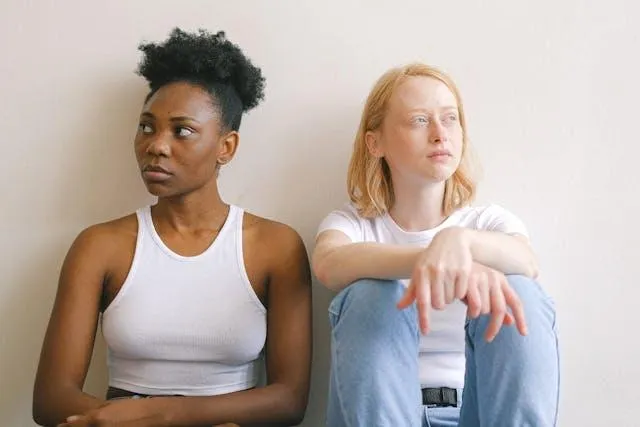Why losing a friend hurts more than a breakup - science explains the heartache

Friendship breakups rarely get the same sympathy as romantic heartbreak. But science and lived experience show they can shake us just as deeply, if not more. .
Image: KoolShooters /pexels
Friendship Day, celebrated internationally on July 30, is an occasion dedicated to honouring the bonds that enrich our lives.
Yet, beneath the surface of these joyful relationships lies a complex reality, one that can lead to profound heartbreak when friendships dissolve. The human psyche often bears the brunt of this grief, revealing startling truths about how our brains react when we lose a friend.
The concept of a World Friendship Day was introduced on July 20, 1958, by Dr. Artemio Bracho during a dinner with friends in Paraguay, emphasising the universal nature of camaraderie.
However, according to recent research, the emotional aftermath of losing a friend can be as painful, if not more so, than ending a romantic relationship.
Most of us are caught off guard, and the pain can run even deeper than any romantic split. Recent research and insights from neurologists like Dr Lisa M. Shulman, author of Before and After Loss: A Neurologist’s Perspective on Loss, Grief, and Our Brain, reveal why the end of a close friendship can feel so devastating.
The hidden heartbreak of losing a friend
In a 2023 YouGov poll, nearly two-thirds of Americans shared that they’ve ended a close friendship. Even though it’s common, it doesn’t feel normal and rarely gets openly discussed.
“Unlike romantic breakups, we rarely expect our closest friends, the ones who know our childhood secrets and life stories, to become strangers,” writes one user on Reddit’s popular Friendship breakups thread. “That shock makes it so much harder to move on.”
The brain's trauma response is triggered by grief, including friendship loss, according to Dr Shulman during an American Brain Foundation webinar. “Traumatic loss is perceived as a threat to survival,” she said.

Friendships can span decades; they shape identity and give us a sense of belonging.
Image: KoolShooters /pexels
Your brain on friendship grief:
1. The brain goes into survival mode
When we lose someone important, the amygdala (part of the brain responsible for processing emotions, especially fear and aggression, and plays a role in emotional memory. It also influences motivation and social behaviour) sees it as a danger.
The fight-or-flight system kicks in: heart rate spikes, blood pressure rises, and stress hormones surge.
2. Mood-regulating chemicals get thrown off
According to psychiatrists, friendship loss can dysregulate neurotransmitters like serotonin, dopamine, and norepinephrine. Lower serotonin means mood dips; less dopamine can lead to anhedonia (loss of pleasure); and higher norepinephrine ramps up anxiety.
3. Memory and emotion collide
Because the brain is capable of rewiring itself, emotional memories can keep triggering anxiety and sadness, especially when you see reminders or go to familiar places.
Why it hurts more than romantic heartbreak (sometimes)
The Grieving Brain author, Dr Mary-Frances O'Connor, points out that friendships often have different kinds of intimacy than romantic relationships. Friendships can span decades; they shape identity and give us a sense of belonging.
Often, people look for someone new after a breakup and expect hurt, explains Psychology Today. But friendship breakups are rarely planned for, making them more shocking and, sometimes, more painful.
Plus, friendship grief is often what psychologists call “ambiguous grief”, mourning someone who’s still alive. Unlike death, there’s rarely a clear closure, which can leave your mind wrestling with confusion, regret, and unanswered questions.

According to recent research, the emotional aftermath of losing a friend can be as painful, if not more so, than ending a romantic relationship.
Image: Anna Shvets/pexels
Psychological fallout of friendship breakups
- Ambiguous grief: This unique grief is painful because it lacks a clear ending. You may question what went wrong, replay conversations, and wonder if reconciliation is possible.
- Feelings of rejection and low self-esteem: Friendship loss can feel like a rejection of who you are, not just what you shared. Over time, this can dent self-confidence and even spark anxiety or depressive symptoms.
- Fear of future connection: The brain may become overly protective, making you hesitant to trust or open up to new friendships, a survival instinct gone too far.
How to heal after a friendship breakup
1. Let yourself grieve: Acknowledge the loss. “Treat it like any significant emotional event,” says Shulman. Journal, cry, or create a ritual to mark the end.
2. Avoid blame: Instead of replaying blame, remind yourself that friendships, like seasons, can naturally change. “Just because it ended doesn’t mean it wasn’t meaningful,” says clinical psychologist Dr Lisa Blum.
3. Get curious, not bitter: Reflect on what worked and what didn’t. What do you value most in friendships? Use these insights to guide future connections.
4. Rebuild your circle: Don’t let one loss close you off. Strengthen other friendships, join community groups, or explore hobbies where you can meet like-minded people.
5. Set new friendship goals: List your non-negotiables: honesty, shared values, emotional availability. Let them shape how you build healthier friendships moving forward.
Friendship breakups rarely get the same sympathy as romantic heartbreak. But science and lived experience show they can shake us just as deeply, if not more.
Like any loss, it takes time, gentleness, and a reminder that the door is open for new connections when you’re ready.